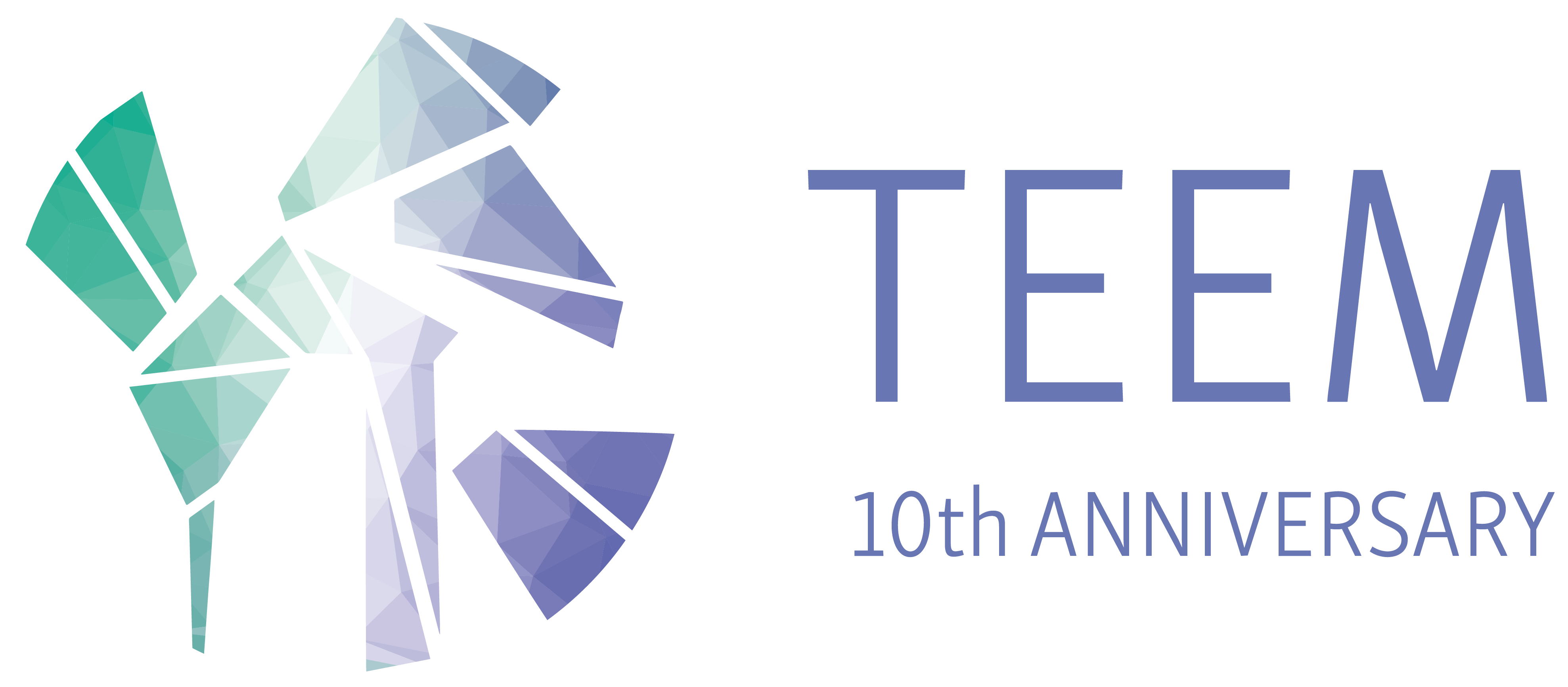Presentation
For a decade now, we have had the pleasure of organizing the track on Learning Analytics at the Technological Ecosystems for Enhancing Multiculturality (TEEM) conference, being present in every edition of the conference. Year after year, in our introductory piece to the track in the conference proceedings we made an effort to both look back at the past (how the field had been developing), the present (where we were at that point) and to the future (what were the future trends on learning analytics).
In these ten years, we have passed from the excitement of riding the wave of a whole new discipline to a frenzy of new streams of research and then to the calm and thoughtful observation of how the field has matured. We have strived to offer both traditional and novel perspectives in our selection of submissions to establish solid foundations and open new lines and ideas to advance knowledge. This year, we want more of both.
One concern that we have raised in recent years is the extreme focus of learning analytics on mathematical methods and algorithms and in the design of learning analytics tools. It is no news that the field has mostly leaned to the domain of computer sciences. We have, and always will welcome such research (new techniques and technologies), as we still consider it necessary for learning analytics to develop.
However, it is necessary to put back the ‘learning’ in learning analytics. Let this call for papers be an open invitation to educational researchers who want to bring a fresh view on the discipline.
We also want to look back and make a recap on the days of excitement and frenzy, but with the calm and experience that only time can provide. It is time to take a brief stop and make a critical assessment of what has been done and where we are if we want to know where to go. Therefore, in this edition, we are also giving priority to systematic literature reviews on the different domains of learning analytics.
Finally, we do not want to forget about a recurrent topic that is often neglected but always emerges during the live sessions at the conference: the reflection about the ethical aspects of learning analytics, especially those related to data privacy, which may lay the ground upon which the ultimate success of learning analytics may be decided.
Topics
As in the previous nine editions, this tenth edition of the track invites researchers across the world to original submissions in the field of learning analytics, with an interdisciplinary perspective. As in previous years, we look forward to receiving valuable contributions that advance theory and practice on the following topics and areas:
- General:
- Systematic literature reviews on the different domain areas of learning analytics
- Success stories and case studies.
- Theoretical advances in learning analytics.
- New approaches and methods in learning analytics.
- Replication and cross-validation of existing research.
- Ethical aspects of learning analytics.
- Data privacy and learning analytics.
- Educational research:
- Educational research and learning analytics.
- Learning analytics and instructional design.
- Multidisciplinary:
- Competence-based learning analytics.
- Learning analytics and self-regulated learning.
- Learning analytics in team-based education.
- Learning analytics for personal learning environments (PLEs).
- Data sources for learning analytics.
- Computing and information technologies:
- Interoperability and standards for learning analytics.
- Mobile learning analytics.
- Multimodal learning analytics.
- Learning analytics in virtual worlds.
- Analysis techniques:
- Discourse and sentiment analytics.
- Social learning analytics.
- Algorithms and procedures.
- Institution-focused learning analytics
- Academic analytics.
- Campus-wide learning analytics adoption.
- Learning analytics and policymaking.
Track Committee
Ángel Hernández-García (Universidad Politécnica de Madrid, Spain) – Chair
Miguel Ángel Conde-González (Universidad de León, Spain) – Chair
Nic Nistor (Ludwig-Maximilians-Universität München, Germany) – Chair
Javier Alfonso-Cendón (Universidad de León, Spain)
Gustavo Ribeiro Alves (Instituto Superior de Engenharia do Porto, Portugal)
Manuel Caeiro-Rodríguez (Universidade de Vigo, Spain)
Agustín Carlos Caminero-Herráez (Universidad Nacional de Educación a Distancia, Spain)
Julián Chaparro-Peláez (Universidad Politécnica de Madrid, Spain)
Ruth Cobos (Universidad Autónoma de Madrid, Spain)
Juan Cruz-Benito (IBM Research, USA)
Carlos Cuenca-Enrique (Universidad Politécnica de Madrid, Spain)
Laura-Del-Río-Carazo (Universidad Politécnica de Madrid, Spain)
Camino Fernández-Llamas (Universidad de León, Spain)
Baltasar Fernández-Manjón (Universidad Complutense de Madrid, Spain)
Ángel Fidalgo-Blanco (Universidad Politécnica de Madrid, Spain)
Antonio Fumero-Reverón (Universidad Politécnica de Madrid, Spain)
Francisco José García-Peñalvo (Universidad de Salamanca, Spain)
Inés González-González (Universidad Pública de Navarra, Spain)
David Griffiths (Universidad Internacional de la Rioja, Spain)
Mariluz Guenaga (Universidad de Deusto, Spain)
Santiago Iglesias-Pradas (Universidad Politécnica de Madrid, Spain)
Ana Isabel Jiménez-Zarco (Universitat Oberta de Catalunya, Spain)
Mikel Larrañaga (Euskal Herriko Unibertsitatea, Spain)
María Arcelina Marques (Instituto Superior de Engenharia do Porto, Portugal)
Emiliano Acquila-Natale (Universidad Politécnica de Madrid, Spain)
Alejandra Martínez-Monés (Universidad de Valladolid, Spain)
Vicente Matellán-Olivera (Universidad de León, Spain)
Milos Milovanovic (Univerzitet u Beogradu, Serbia)
Miroslav Minovic (Univerzitet u Beogradu, Serbia)
Amílcar Oliveira (Universidade Aberta, Portugal)
Pedro José Muñoz-Merino (Universidad Carlos III, Spain)
Luis Panizo-Alonso (Universidad de León, Spain)
Rafael Pastor (Universidad Nacional de Educación a Distancia, Spain)
Antonio Robles-Gómez (Universidad Nacional de Educación a Distancia, Spain)
Salvador Ros-Muñoz (Universidad Nacional de Educación a Distancia, Spain)
Teresa Sancho (Universitat Oberta de Catalunya, Spain)
Roberto Therón (Universidad de Salamanca, Spain)
